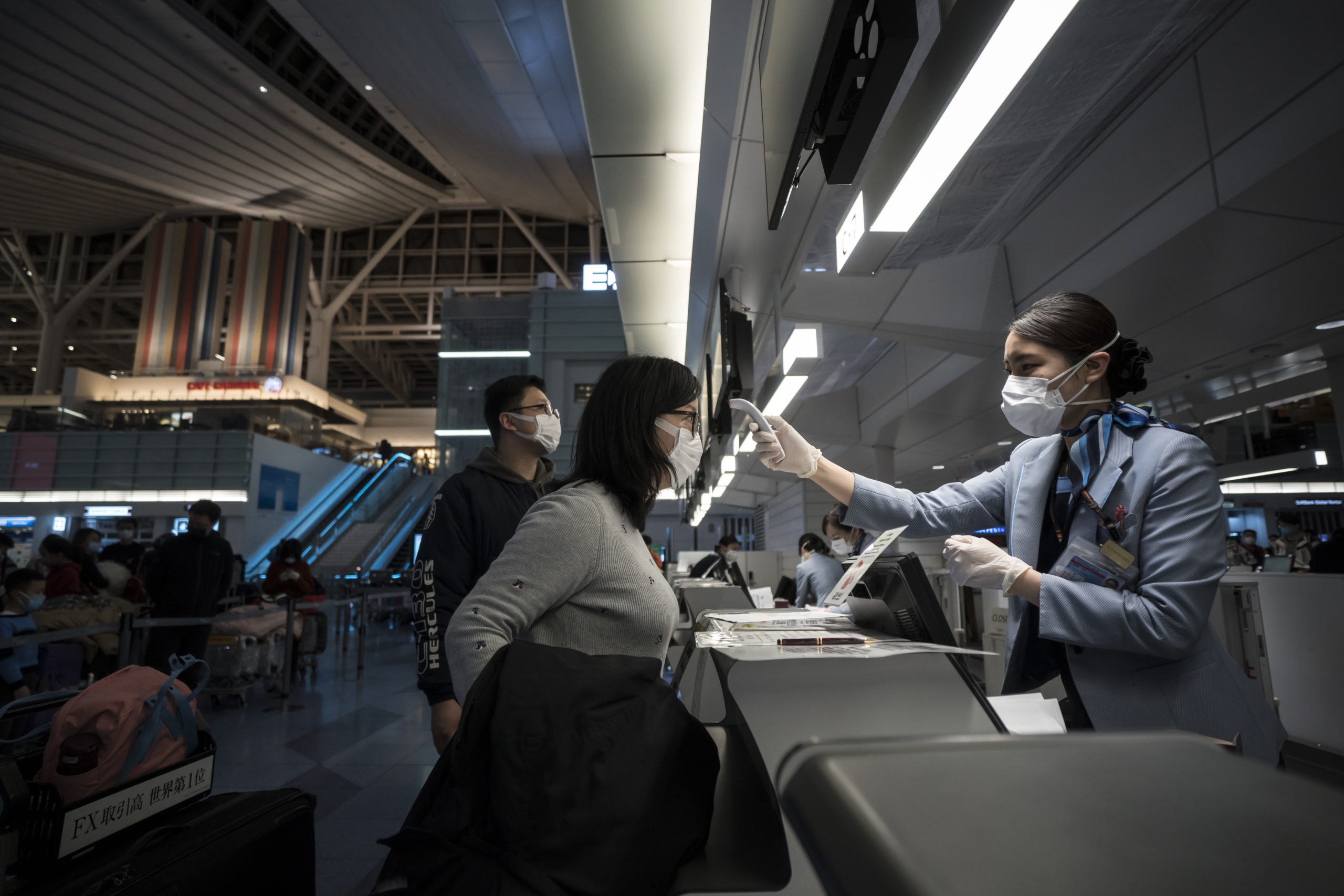LGBT+ people in Japan fear they could be outed against their will if they contract coronavirus

Japan is taking tough measures to control the spread of coronavirus (Carl Court/Getty)
With health authorities in Japan probing coronavirus infection routes, many LGBT+ people fear they could be outed against their will if they fall ill with the virus.
Like South Korea, health authorities in Japan have begun contact tracing coronavirus patients to learn how they were infected and to stop the spread of the virus.
The current policy allows governors to arrange questioning of patients and to authorise an investigation of their contacts and the places they’ve visited.
This means LGBT+ people who aren’t yet out could potentially be identified through the people they’ve been meeting, or the bars and clubs they’ve been visiting.
The concerns were revealed in a survey of 180 LGBT+ people by Marriage for All Japan, an advocacy group fighting for marriage equality.
They heard from a 34-year-old man who lives with his same-sex partner in Fukuoka, southwestern Japan, and has chosen not to be open about his sexual orientation at his office.
He worries he could be forced out of the closet if he catches coronavirus as he would have to tell a public health centre about his partner when asked about people he’s had close contact with.
LGBT+ families worried they won’t be recognised.
The survey also found that LGBT+ people are worried about whether they or their partner will be able to receive medical information if they are hospitalised with coronavirus, or if their partner will be consulted in important medical decisions.
Among those concerned is Kohei Inagaki, 28, whose union is recognised by the city of Saitama as equivalent to a legal marriage — but it’s still not enough to be with his partner if he is critically injured or ill.
“I may not be notified of my partner’s health condition and may not be able to be involved in making decisions on treatment,” he said.

A passenger receives a temperature check before being allowed to board a flight in Tokyo, Japan. (Tomohiro Ohsumi/Getty)
Perhaps because of this inconsistency, the survey also revealed a misunderstanding among some LGBT+ couples that they aren’t eligible for government compensation for childcare as schools are closed.
Haru Ono, who is raising three children together with her partner, said the government has not clarified that the program targets all people with kids.
“There are many [LGBT+] people who have given up on applying for it without knowing [that it applies to them too],” she said.
“I want them to state that same-sex couples are also covered.”
Gon Matsunaka, who heads an LGBT+ nonprofit, warned Kyodo News that minorities could bear the brunt of the crisis, and urged the government to provide greater support.
“We understand that the government’s top priority is protecting the lives of the people, but we want it to take a look at LGBT+ and other people who have serious problems regarding privacy and take measures so that they don’t fall through the safety net,” Matsunaka said.

